Pet vaccination is a cornerstone of responsible pet ownership. Immunising your pets safeguards their health and well-being.
Pets are cherished members of countless households. Understanding the significance of vaccination is crucial.
We’ll shed light on the essential aspects of pet vaccination, covering everything from vaccination schedules to vaccine safety.
Let’s dive in.
Understanding Pet Vaccination
Pet vaccination stands as a fundamental pillar of preventive healthcare for pets.
Purpose of Pet Vaccination
Pet vaccination involves administering vaccines to animals to stimulate their immune systems. This protects against specific infectious diseases.
Vaccinations prevent pets from contracting and suffering from illnesses. These are potentially serious, and sometimes fatal, illnesses caused by viruses and bacteria.
Benefits of Vaccinating Pets
Vaccinating pets against common diseases offers a multitude of benefits. It protects individual animals and the broader pet population.
Benefits include:
- Preventing the spread of infectious diseases among pets. This reduces the risk of outbreaks and minimises the transmission of pathogens within communities.
- Protecting pets from debilitating and life-threatening illnesses. This improves their quality of life and longevity.
- Reducing the potential for zoonotic diseases (infectious diseases that can pass from animals to humans).
How Vaccinations Protect Pets
Vaccinations expose your pets to a weakened or inactivated form of a disease-causing agent. This agent, known as an antigen, doesn’t cause the actual disease.
When your pet gets vaccinated, its immune system recognises the antigen as foreign. It mounts a protective immune response – sending its soldiers out to battle the foreign antigen.
This produces antibodies to fight off the specific pathogen. These antibodies remain in the pet’s system, so If reencountered, they are ready to combat the pathogen.
Vaccinations prime the immune system to recognise and respond to potential threats. This effectively prevents your pets from falling ill when exposed to the illness.
The immunisations help protect your pet when travelling.
Puppy Vaccinations
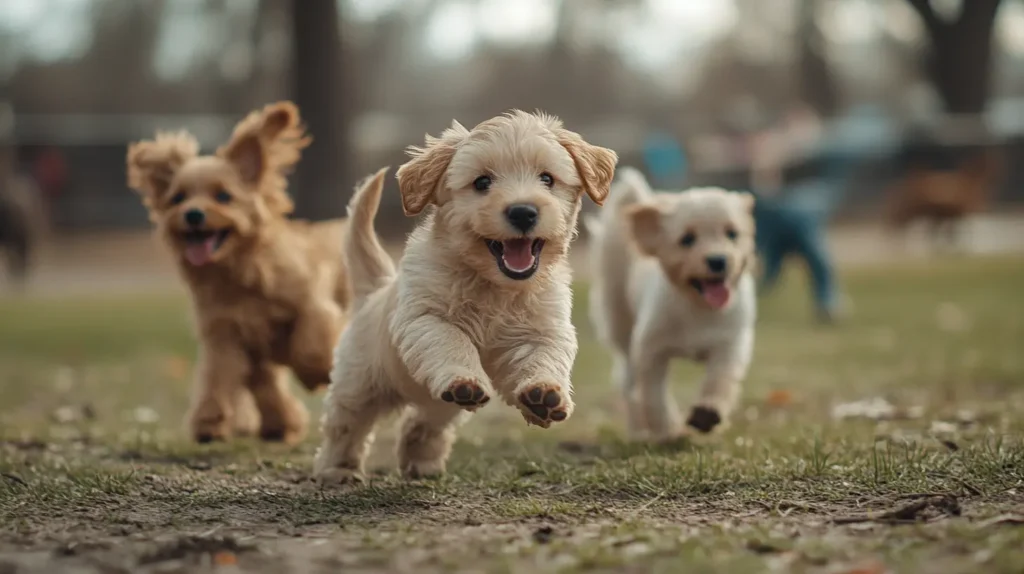
Vaccinations protect your puppy from contagious and potentially fatal diseases. Ensuring your puppy is up to date with their vaccinations reduces the risk of these diseases.
Core Dog Vaccines
All dogs in Australia should receive core vaccines to protect them from serious, life-threatening diseases.
The core dog vaccines are:
These vaccines often get combined into one immunisation called the C3 vaccine.
Non-Core Dog Vaccines
Factors like geography, environment and lifestyle can put puppies at risk from other diseases. The non-core vaccines protect them.
The common non-core dog vaccines include:
These vaccines protect dogs from kennel cough, a contagious respiratory disease.
Leptospirosis is another non-core vaccination. Your dog is at risk of this if it comes into contact with stagnant water exposed to infected rat urine.
Puppy Vaccination Schedule
Puppies require a series of vaccinations to build immunity against common infectious diseases.
Here is the typical vaccination schedule for puppies:
| Age | Vaccination Type | Diseases Covered |
| 6-8 weeks | First vaccination | Distemper, hepatitis, and parvovirus |
| 10-12 weeks | Booster vaccination | Distemper, hepatitis, parvovirus, parainfluenza, and bordetella |
| 14-16 weeks | Final puppy vaccination | Distemper, hepatitis, parvovirus, parainfluenza, and bordetella. Depending on the brand used, puppies may not require parainfluenza and bordetella at this age |
| Every year after | Annual boosters | Your adult dog needs yearly vaccination boosters for the rest of their life to remain immune from these diseases |
Kitten Vaccinations
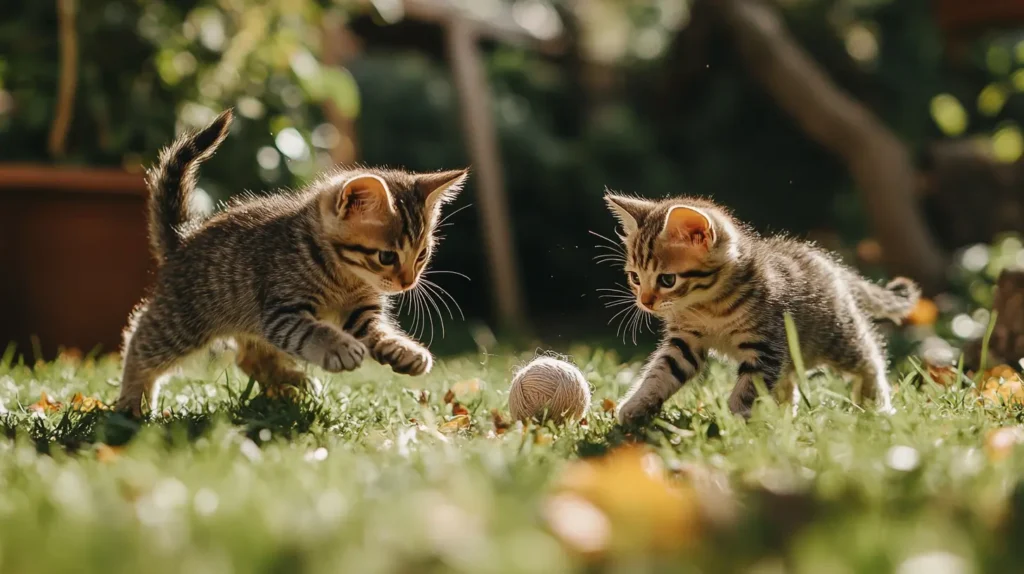
Vaccinations safeguard your kitten against severe illnesses that can have major health implications.
Core Cat Vaccinations
These are essential for every cat in Australia. They protect your cat from serious diseases.
The core cat vaccines are:
These vaccines often get combined into a single injection called the F3 vaccine.
Non-Core Cat Vaccines
Your vet can recommend these vaccines depending on your circumstances. The area you live in, whether you have an indoor or outdoor cat and other lifestyle elements play a role.
Non-core vaccines are:
Kitten Vaccination Schedule
Kittens undergo a similar vaccination schedule to puppies to protect them from common diseases. The typical vaccination schedule for kittens includes:
| Age | Vaccination Type | Diseases Covered |
| 6-8 weeks | First vaccination | Herpes, Calicivirus, Panleukopenia, (FIV) |
| 10-12 weeks | Booster vaccination | Herpes, Calicivirus, Panleukopenia, (FIV), (Leukaemia, Chlamydia) |
| 14-16 weeks | Final kitten vaccination | Herpes, Calicivirus, Panleukopenia, (FIV), (Leukaemia, Chlamydia) |
| 1 year after | First adult booster vaccination | Herpes, Calicivirus, Panleukopenia, (FIV), (Leukaemia, Chlamydia) |
| Every 1-3 years after | Booster vaccinations | Herpes, Calicivirus, Panleukopenia, (FIV), (Leukaemia, Chlamydia) |
FIV is the Feline Immunodeficiency Virus, which is crucial if you plan to allow your kitten outdoors and to socialise with other cats.
Importance of Following Pet Vaccination Schedules
Adhering to vaccination schedules is crucial for timely and adequate protection against preventable diseases. Vaccination schedules coincide with the period when maternal antibodies wane and a pet’s immune system can mount an effective response to vaccines.
Here are four reasons why following pet vaccination schedules is important:
- Disease Prevention: Vaccinations protect pets from severe and potentially fatal diseases such as distemper and parvovirus. Immunising your pet significantly reduces the risk of these infections.
- Public Health: Vaccinating pets helps prevent the spread of zoonotic diseases, which are transmissible from animals to humans. This is why pets entering Australia from certain countries need the rabies vaccine.
- Cost Savings: Treating a pet for a preventable disease can be far more expensive than the cost of routine vaccinations. Preventative care reduces the financial burden of potential medical treatments.
- Longevity and Quality of Life: Vaccinations contribute to a longer, healthier life for your pets. They help ensure pets remain free from common diseases that could compromise their quality of life.
Vaccine Safety and Side Effects
Vaccinations are crucial for protecting pets from infectious diseases. But pet owners may have concerns about vaccine safety and potential side effects.
Vaccine Safety Concerns for Pets
Safety is a top priority for pet owners. Having concerns about potential risks associated with vaccinations is natural.
Vaccines undergo rigorous testing for safety and efficacy before they are approved for use in pets. Adverse reactions to vaccines are rare and typically mild compared to the risks associated with contracting preventable diseases.
Potential Side Effects of Pet Vaccinations
While most pets tolerate vaccinations well, some may experience mild side effects.
These may include:
- Mild swelling or tenderness at the injection site
- Temporary discomfort or soreness
- Lethargy or decreased appetite
- Low-grade fever
Serious adverse reactions to vaccines are extremely rare but may include allergic reactions, anaphylaxis, or vaccine-induced sarcomas (in cats). Pet owners need to be aware of potential side effects and monitor their pets closely after vaccination.
What to Expect After Vaccinating a Pet
After vaccinating a pet, it’s normal for them to experience mild side effects. This is generally mild swelling or lethargy for a day or two.
If your pet experiences severe or prolonged side effects, it’s crucial to seek veterinary care promptly.
Signs that may indicate a serious adverse reaction include:
- Difficulty breathing
- Facial swelling or hives
- Persistent vomiting or diarrhoea
- Collapse or loss of consciousness
- Severe lethargy or weakness
Contact your vet immediately if your pet has any of these symptoms after vaccination.
Vaccinations and Pet Travel to Australia
Authorities recommend various vaccinations when bringing pets to Australia. Ensuring that pets are up to date with vaccinations is recommended.
Required Vaccinations
- The rabies vaccine is required to enter Australia from most countries.
- The leptospirosis vaccine for dogs is required if your dog hasn’t been tested.
- The canine influenza vaccine is required if entering Australia from an affected country.
Recommended Vaccinations for Dogs
- Distemper
- Hepatitis
- Parvovirus
- Para-influenza
- Bordetella bronchiseptica (kennel cough)
Recommended Vaccinations for Cats
- Feline enteritis (panleukopenia or feline parvovirus)
- Feline calicivirus
- Feline herpesvirus (feline viral rhinotracheitis)
Conclusion
Pet vaccinations keep our furry friends safe from potentially fatal diseases. They safeguard the health and well-being of your pets, minimising the risk of preventable illnesses and promoting longevity.
Puppies and kittens have a vaccination schedule – generally for the first 16 weeks. Then, they get regular booster vaccinations to keep their immunity strong.
Major side effects are rare. Any potential risks are minor compared to contracting the disease.
We always recommend your pet’s vaccinations are up to date when travelling, especially overseas. It keeps them safe and healthy in new environments.
Some vaccinations are required for travelling to Australia.
- The rabies vaccine is required to enter Australia from most countries.
- The leptospirosis vaccine for dogs is required if your dog hasn’t been tested.
- The canine influenza vaccine is required if entering Australia from an affected country.
Are you planning to travel with your pet? A pet transport company like Dogtainers can help.
We’ve been safely transporting pets for 50+ years. It’s easy to get a quote for domestic and international pet travel.

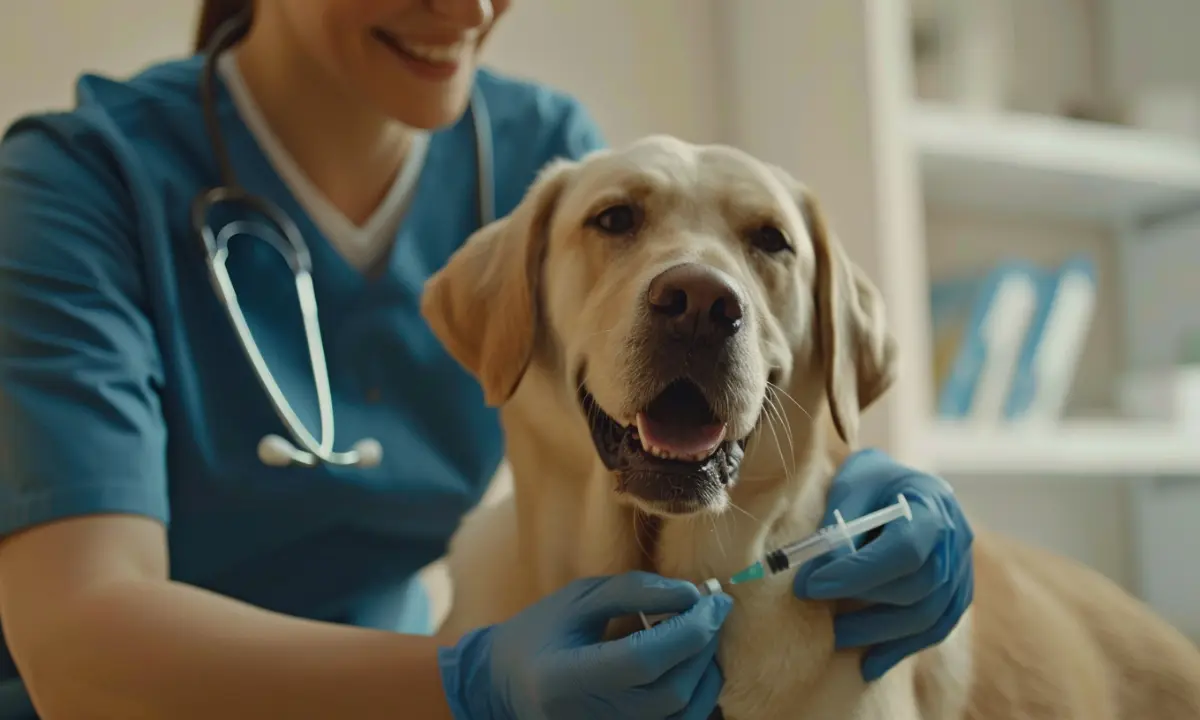
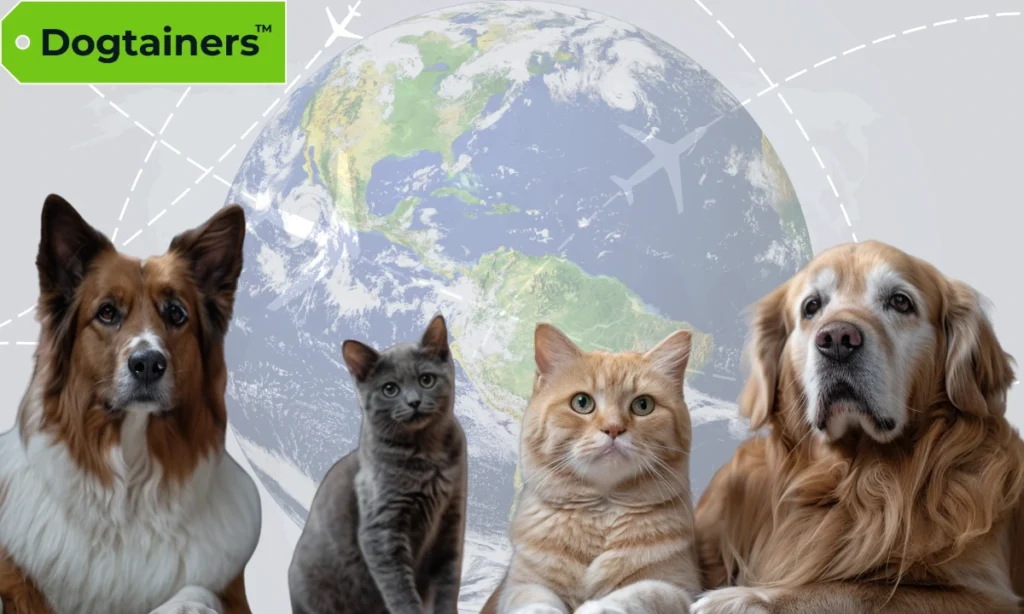
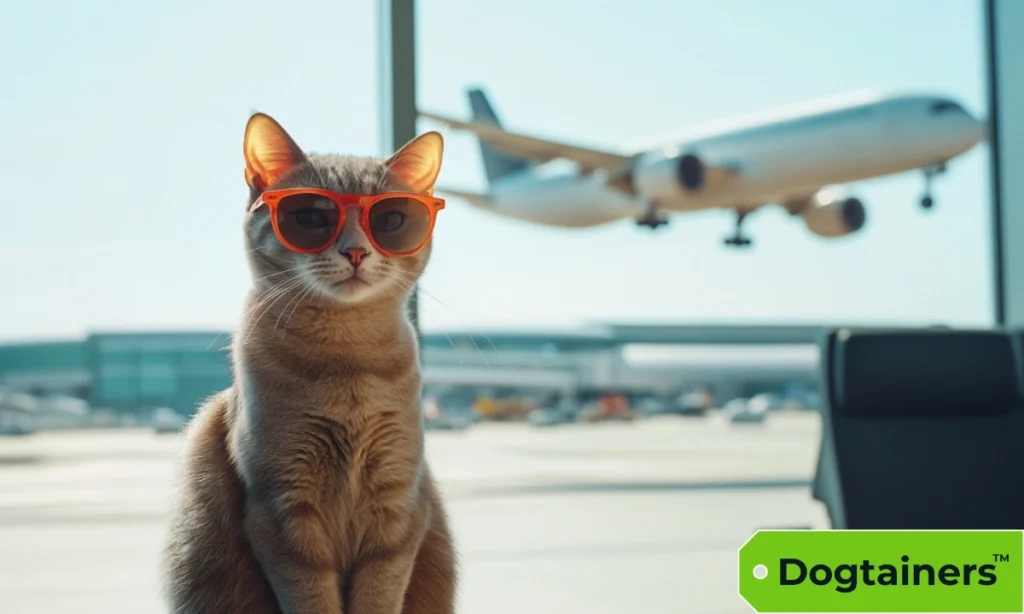
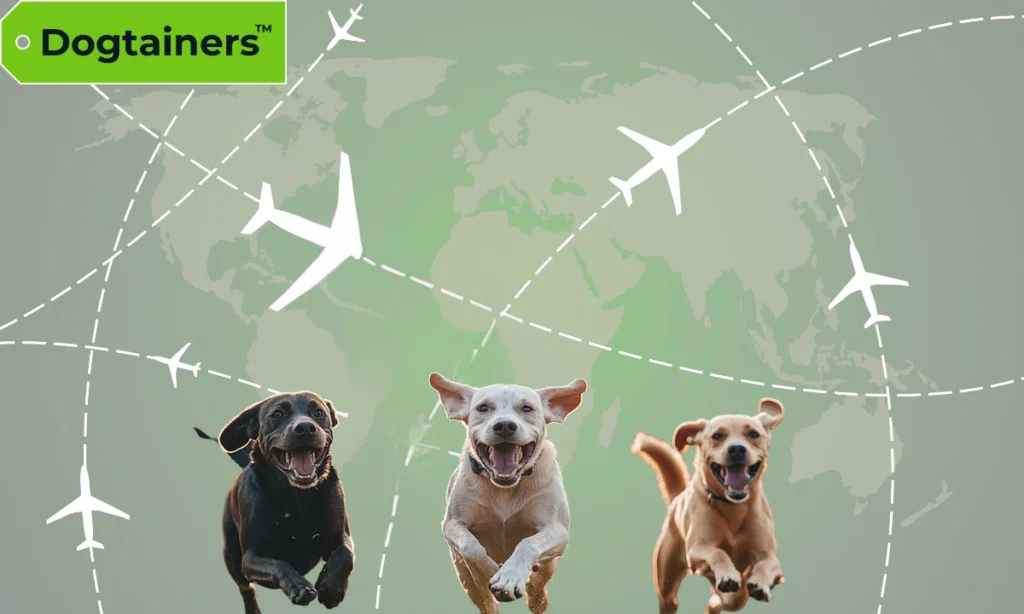
Share this article